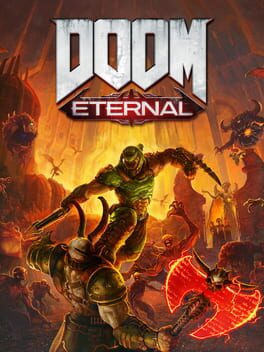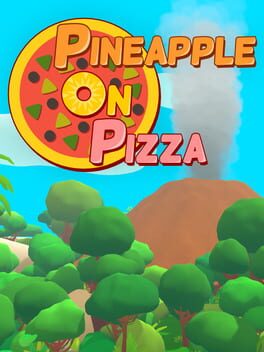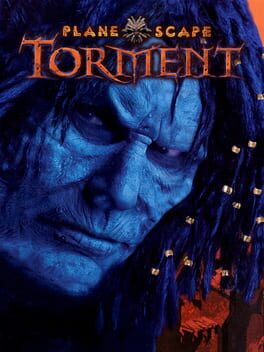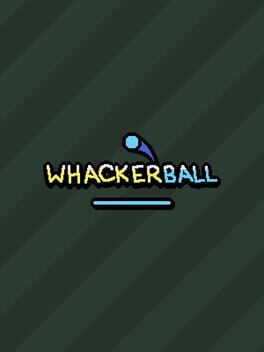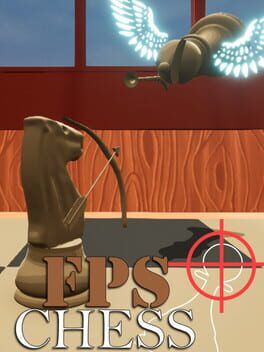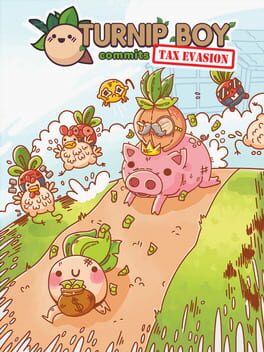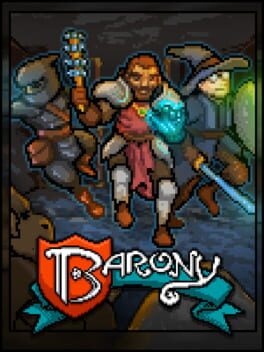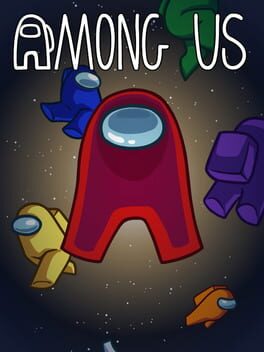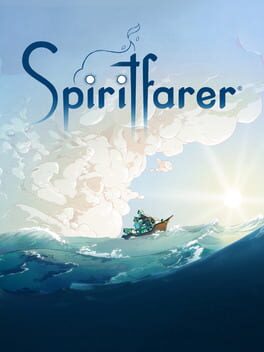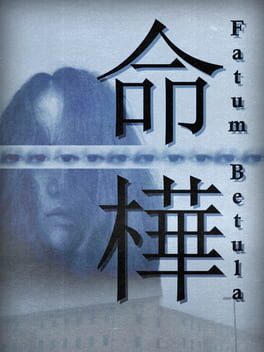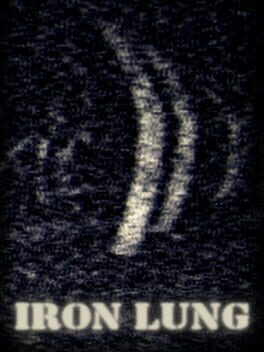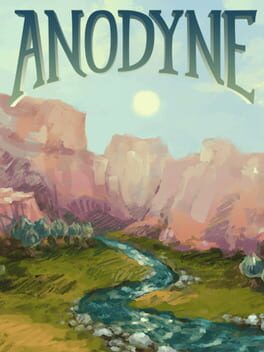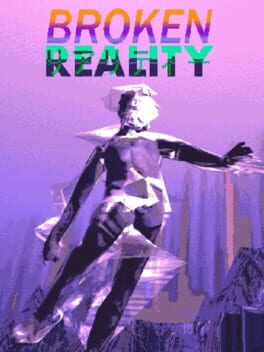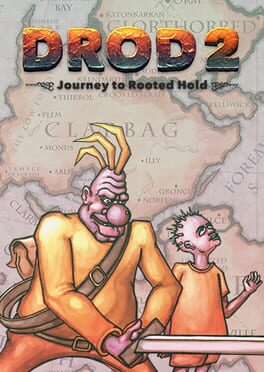Erolk
2020
Kind of disappointed in this one. The general feel of the gunplay is just not great. In order to preserve ammo (and get more ammo), you basically have to execute every enemy you see with melee. It feels like I'm constantly focused on switching to a new weapon type that will replenish ammo for another weapon that I need to use to replenish ammo for the weapon I actually want to use... ad infinitum. Execute literally every enemy with melee because melee kills reward ammo. I'd rather just SHOOT GUN if you know what I'm sayin'. There are a laughably huge number of progression systems and trees.
The game just feels tedious.
The game just feels tedious.
2023
1999
It feels weird for me to rate this game so highly, because the actual RPG mechanics and combat are pretty bad. Thankfully, the game is pretty light on combat compared to, say, Baldur's Gate. If you can stomach the clunky combat system, there's a ton of great storytelling and old school CRPG charm to find here.
Definitely check this one out if you enjoy interesting settings and worldbuilding, as Sigil is one of the most unique settings in the D&D multiverse.
Definitely check this one out if you enjoy interesting settings and worldbuilding, as Sigil is one of the most unique settings in the D&D multiverse.
2023
The gameplay itself is really fun and chaotic. There really needs to be more variation in items and levels, because I feel like I always end up with the same build and it works every time. I think I lost 2-3 time, and then proceded to win 5 runs in a row after figuring out a build that works.
Overall a small and fun experimental game. Worth checking out.
Overall a small and fun experimental game. Worth checking out.
2022
This isn't a bad game, but it's not a very interesting one. The humor is very hit/miss and full of a lot of meme references and fourth wall breaks. The tax evasion/document ripping joke is kind of funny but it feels played out even after the first ~10 minutes of the game. The game itself is an extremely pale imitation of a 2D zelda game. It superficially resembles a zelda game, but there aren't many original gameplay ideas or interesting puzzles. The game feels like you're playing the item trading sidequest in a zelda game without any of the other content.
2015
This is a pretty good time with friends. The game obviously takes a ton of inspiration from the classics like rogue and nethack, and the devs have put a lot of effort into keeping Barony as true as possible to the roguelike genre (despite being a first-person and real-time game). It's extremely punishing and difficult, in a classic roguelike sort of way.
The choice to include the minotaur (a clock mechanic in the form of a monster that appears if you spend too much time on a floor) in addition to the hunger clock is a strange one. This isn't a huge deal though, since you can disable either or both.
The skill system (the same system Oblivion uses) doesn't seem to fit the game very well. Grinding magic by spamming cheap spells, for instance, is tedious and not something I want to do in a game that could come to an end and completely restart at any moment.
Barony's biggest flaw, in my opinion, is the lack of variety. I feel like I find the exact same weapons, spells, potions, etc. during every run. There are a few different builds, but by mid-game, characters of the same archetype are all basically identical. This is similar to how Nethack works, but in Nethack, there is a ton of variety in terms of player actions, complex interactions, and secrets. DCSS can get away with having similar levels (like barony) by having a huge variety of unique items, enemies, and playstyles. This makes Barony feel like it doesn't have that "one more run" replayability of classic roguelikes; it often just leaves me feeling bored and uninterested after a run ends.
It might not be fair to compare this to more mature roguelikes. I'm sure in 15 years this will be one of the best games of all time.
The choice to include the minotaur (a clock mechanic in the form of a monster that appears if you spend too much time on a floor) in addition to the hunger clock is a strange one. This isn't a huge deal though, since you can disable either or both.
The skill system (the same system Oblivion uses) doesn't seem to fit the game very well. Grinding magic by spamming cheap spells, for instance, is tedious and not something I want to do in a game that could come to an end and completely restart at any moment.
Barony's biggest flaw, in my opinion, is the lack of variety. I feel like I find the exact same weapons, spells, potions, etc. during every run. There are a few different builds, but by mid-game, characters of the same archetype are all basically identical. This is similar to how Nethack works, but in Nethack, there is a ton of variety in terms of player actions, complex interactions, and secrets. DCSS can get away with having similar levels (like barony) by having a huge variety of unique items, enemies, and playstyles. This makes Barony feel like it doesn't have that "one more run" replayability of classic roguelikes; it often just leaves me feeling bored and uninterested after a run ends.
It might not be fair to compare this to more mature roguelikes. I'm sure in 15 years this will be one of the best games of all time.
2018
2020
This is an extremely cozy game. It manages to strike a delicate balance of simultaneously being relaxing and engaging. I often feel overwhlemed or rushed in sim-management games such as stardew valley, but I never feel that way in Spiritfarer (food never burns, for example). It really lets you go at your own pace.
The attention to detail is fantastic. The game looks and feels great, the characters are fun and interesting, and the pacing is just right. If this looks like your kind of game, it probably is.
I'm only a few hours into the game, and I tend to play it in short bursts. My opinions might change once I've played for tens of hours, but so far this one has kept me coming back.
The attention to detail is fantastic. The game looks and feels great, the characters are fun and interesting, and the pacing is just right. If this looks like your kind of game, it probably is.
I'm only a few hours into the game, and I tend to play it in short bursts. My opinions might change once I've played for tens of hours, but so far this one has kept me coming back.
2020
This is a bit of a weird one to recommend. It's a short game about exploring a small, somewhat spooky and offbeat world and finding LIQUIDs. If that sounds interesting, and the aesthetics appeal to you, I'd say it's worth checking out.
There are several endings, though due to the overall simplicity and minimalist nature of the game, I found most of them to either be nonsensical or uninteresting. I still ended up trying to find all of them, though. It's a game I enjoyed more for the mood and atmosphere than the gameplay itself.
There are several endings, though due to the overall simplicity and minimalist nature of the game, I found most of them to either be nonsensical or uninteresting. I still ended up trying to find all of them, though. It's a game I enjoyed more for the mood and atmosphere than the gameplay itself.
2022
Cool concept for a game. Nice sound effects and ambience. Unfortunately, the gameplay is just extremely monotonous and boring, even for the short 1-2 hours this game takes to play.
I don't mean to be overly critical, since this was clearly intended as a short/minimalistic experience. I think there are a lot of good ideas here, they just aren't fully realized
I don't mean to be overly critical, since this was clearly intended as a short/minimalistic experience. I think there are a lot of good ideas here, they just aren't fully realized
2013
This game really surprised me. Anodyne is a love letter to the GB/GBC Legend of Zelda games, but I think it stands on its own. There's a ton of attention to detail, and a lot of interesting puzzle mechanics. I won't spoil anything about the theme and story, but it's really unique and presented in a pretty cool way.
I'm sure my opinion of this game is somewhat colored by my nostalgia for Link's Awakening and the Oracle games, but I'm still strongly recommending it.
I'm sure my opinion of this game is somewhat colored by my nostalgia for Link's Awakening and the Oracle games, but I'm still strongly recommending it.
2019
2018
I was really excited about this game. It was recommended to me after mentioning that I loved Hypnospace Outlaw. Broken Reality has a really cool early internet, vaporwave-ish aesthetic. Unfortunately, that aesthetic is just an skin on top of a relatively boring first-person puzzle adventure game. The theme really just doesn't work, in my opinion. The game looks like it's about a weird early internet metaverse zuckerworld, but mechanically, it doesn't make you feel like you're in one. The puzzles aren't particularly interesting, and the game world is nowhere near as interesting or engaging as it could be, given the theme.
DROD is a relatively unknown series with a small, dedicated following. I played the first DROD game on a windows 98 shareware disc back in 2000, and if not for that, I don't think I would have ever heard of it.
It is a turn-based dungeon-crawling puzzle game, and on each turn the player can either move one tile, or rotate their sword around them by one tile (out of the 8 surrounding tiles). It seems simple at first, but the game constantly introduces new mechanics and enemies to keep things interesting.
The overall aesthetic style of the game may not be for everyone, but it's unique and has a lot of character.
I'd suggest starting with the fourth game: DROD: Gunthro and the Epic Blunder, since it's a bit more modern and accessible (I'm reviewing this one because it's the only game in the series I've actually finished thus far)
It is a turn-based dungeon-crawling puzzle game, and on each turn the player can either move one tile, or rotate their sword around them by one tile (out of the 8 surrounding tiles). It seems simple at first, but the game constantly introduces new mechanics and enemies to keep things interesting.
The overall aesthetic style of the game may not be for everyone, but it's unique and has a lot of character.
I'd suggest starting with the fourth game: DROD: Gunthro and the Epic Blunder, since it's a bit more modern and accessible (I'm reviewing this one because it's the only game in the series I've actually finished thus far)
